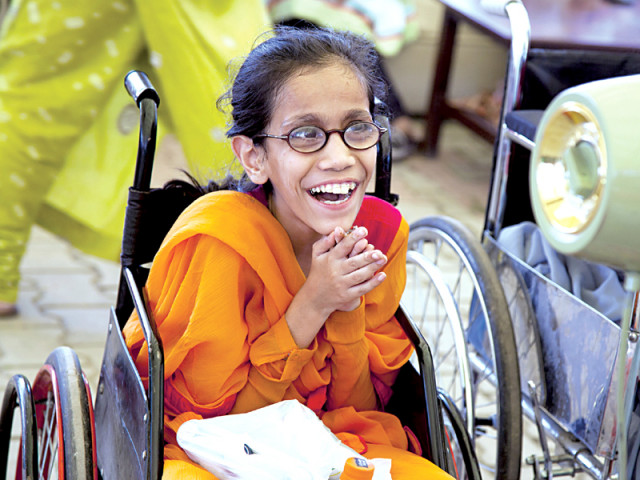Inequitable dealings
The current conditions of institutions for handicapped children are inhumane and violate human rights

Until the national discourse changes and enables the incorporation of special persons into mainstream society, they will continue to be marginalised and neglected. PHOTO: MYRA IQBAL
In light of the above, the Directorate General for Special Education must be investigated and certain practices scrutinised. First, the number of excessive staff needs to be reduced as they continue to usurp funds. The focus should be on investing in human capital that is skilled at and passionate about improving the lives of students. Next, rather than establishing new institutions, current schools could include resource rooms for children with special needs. The current conditions of institutions for handicapped children are inhumane and violate human rights: defective furniture at these facilities and the allotment of a single van at one institution to shuttle 200 physically handicapped children, who require extra space for manoeuvering, is unjust.
Beyond physical facilities such as wheelchair ramps, handicap parking spots, and elevators in public and private spaces, there is also a need for better access to mental, physical and emotional healthcare along with equal educational and employment opportunities for special persons. Until the national discourse changes and enables the incorporation of special persons into mainstream society, they will continue to be marginalised and neglected. It is not the job of philanthropists to work in this area. This is something the government is responsible for, and that is to ensure all segments of society are looked after and their rights protected.
Published in The Express Tribune, April 18th, 2015.
Like Opinion & Editorial on Facebook, follow @ETOpEd on Twitter to receive all updates on all our daily pieces.















COMMENTS
Comments are moderated and generally will be posted if they are on-topic and not abusive.
For more information, please see our Comments FAQ